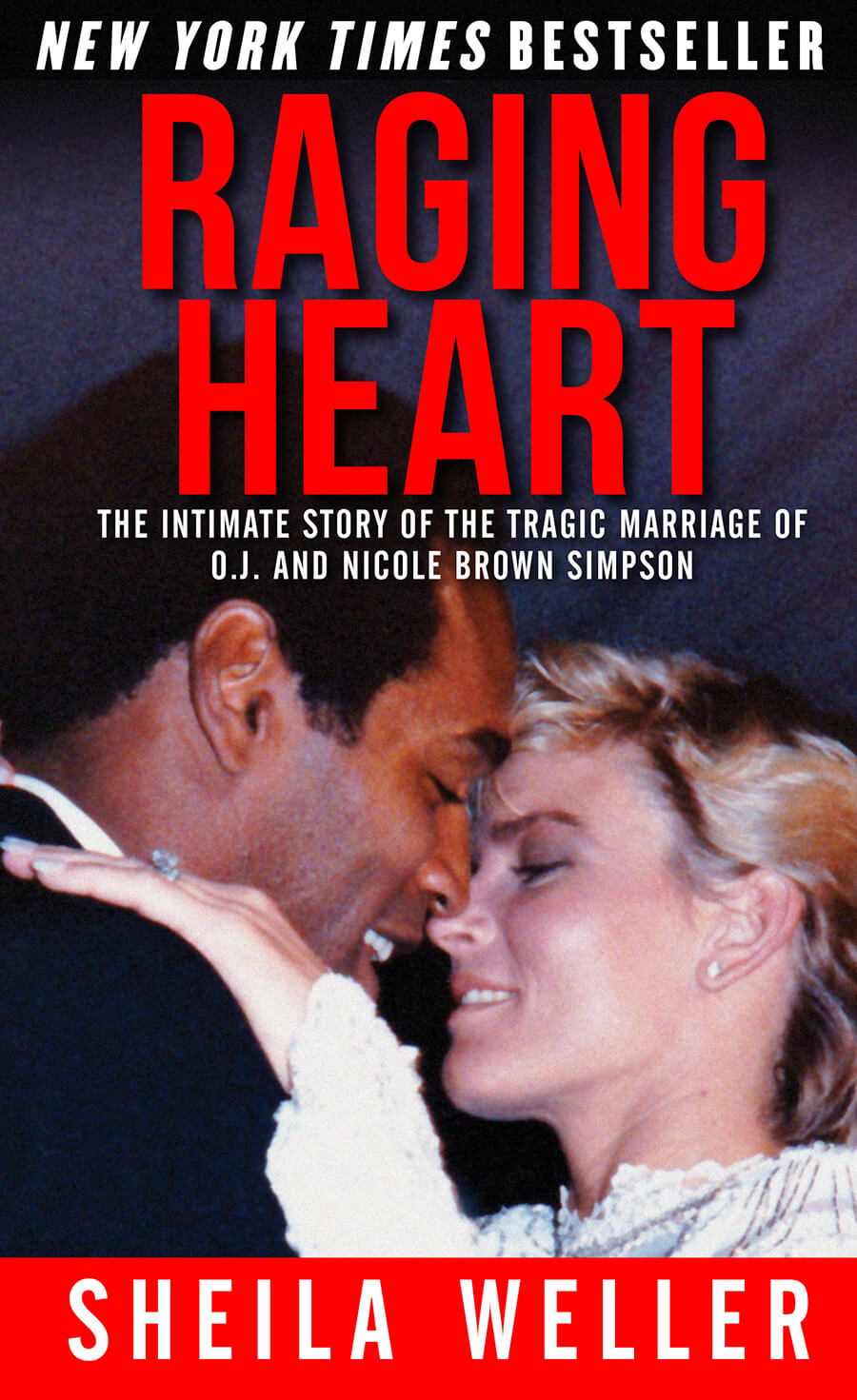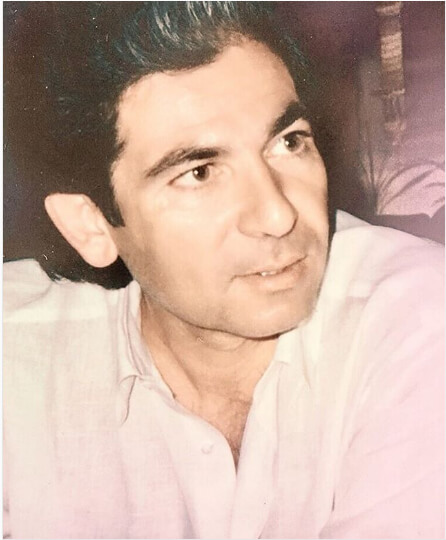As the 25th anniversary of the murders of Nicole Brown Simpson and Ronald Goldman allegedly by O.J. Simpson (we have to say “allegedly” because he was cleared of the crime in the criminal trial) comes up this week, the tabloids have been getting into the action. Even though the world of O.J. and Nicole was full of distinctive personalities, the name that has zoomed from minor to permanently major is that of Kris Kardashian Jenner. Kris was one of Nicole’s five best friends; O.J.’s buoyant, generous wife had an active girl pack. At the time of the murders, Kris had been divorced for three years from O.J.’s good friend and lawyer, Robert Kardashian. In the summer of 1994, Kris married Bruce Jenner, whom we now, of course, know as Caitlyn.
Just recently a tawdry story popped out on the home page of the digital version of the New York Post. The story claimed that, in 1990, O.J. and Kris (then still married to Kardashian) had had sex in a hot tub and that she had later needed to go to the hospital as a result of that encounter. It further claimed that O.J. had refused to take her, imperiously passing the duty along to Bob.
I think that in today’s world, it is very unlikely that Nicole Simpson and Ron Goldman would have been murdered.
I guess we’ll be seeing more of those stories now that the 25th anniversary of the murders is upon us, but I have a different perspective on the case and the couple’s social network as a result of my intense and exclusive conversations with many of the couple’s closest friends for my book, Raging Heart, which I wrote to try to explain how domestic violence can occur repeatedly, if sporadically, over the decades and how spousal murder can happen in even the most enviable-seeming marriages.
But based on my knowledge of the case and my long-time reporting on domestic violence and, more recently, observing, as we all have, the world-rocking #MeToo movement—which, sparked by the numerous revelations of Harvey Weinstein’s sexual harassment, the election of a president who had bragged of grabbing women’s “pussies,” and social media—I can say that in today’s world, I think it is very unlikely that Nicole Simpson and Ron Goldman would have been murdered.

The World Then
The America we lived in in the ‘80s and ‘90s could sustain a complicated marriage of a hyper-charismatic former sports hero and an outwardly assertive, but secretly very vulnerable blond model-turned-salesgirl-turned-waitress-turned wife and devoted mother: Nicole. She often hid or downplayed the intermittent but unquestioned abuse she suffered from her husband within their privileged and glamorous 17-year-long relationship, which included many separations, marriage, divorce, and a complicated re-commitment.
In today’s very different America, their love affair might have been stopped at the first date.
In today’s very different America—where the bar for mistreatment has been upped to an extraordinary degree—their love affair might have been stopped at the first date. Nicole had met O.J. while she was a waitress at the popular Beverly Hills in-spot, The Daisy, and after her evening out with him she came home with her jeans torn. Her quasi big brother, photographer David LeBon, with whom she shared an apartment, was shocked. She casually remarked that, in the heat of sex, O.J. had torn them.
David LeBon told me that, years later, when the abuse accelerated, he felt angry at himself and guilty that he hadn’t told his “little sister” to not accept a second date with the then-worshipped former Heisman Trophy winner whose smiling face had made him beloved in Hertz commercials, Brentwood gatherings, and charity fundraisers.
In just now re-acquainting myself with the stories I was told, in the summer of 1994 by the friends who knew and loved Nicole (and who were—yes—charmed by O.J., for reasons that were often more than superficial), it felt like I was entering another universe. Here we are, at a moment when a respected senator, Al Franken, was forced to resign from office over a jokingly risqué video made during a comedy-skit-filled USO tour and proffered by a woman with a political agenda. When prominent TV news stars (Charlie Rose), comedians (Louis C.K.), and journalists (Mark Halperin, John Hockenberry)—and so many others that it’s hard to keep count—are whisked off TV and radio shows and are having book deals axed due to sexual harassment. And here I am, remembering what Nicole’s friends told me.
Many things from that long-ago time make me sad. Once Nicole returned from an evening with friends at a later hour than O.J. wanted her home. Furious, he took an heirloom desk of hers and threw it out the window. The next day someone very close to Nicole who should have been outraged and protective called Nicole and asked, “What happened to the desk?” And “Were you kicked out?” Nicole said everything was “okay”—she’d moved back in and been forgiven by O.J. Pause on that for a moment.
On a different occasion, another friend of Nicole, the actress Robin Greer, went over to visit Nicole at the Simpsons’ Brentwood house, but O.J. stopped Robin and said, “She doesn’t want to see anybody.” Later Nicole told Robin: “I couldn’t come down and be seen. I didn’t have enough cover-up makeup.” Yet another time Nicole told her very good friend Linda Schulman that “O.J. would kill me if I left him. Or if I cheated on him.” (Of course, this eventually happened.) Linda told me she’d worriedly responded, “Nicole, how can you live like this?” Nicole had stoically answered, “I don’t know, but I do.” She then told Linda that O.J. had once taken a wine bottle and broken her ribs. Linda was shocked and angered and pleaded with Nicole to leave, as other friends also later did. Nicole said, “I could never leave him. There’s just something about O.J. that I love.”
The Reality Now
Today, one imagines that these acts of violence would have been reported by Nicole’s friends to Ronan Farrow and Jane Mayer of The New Yorker or the Pulitzer-Prize-winning, all-female team reporting on #MeToo issues at the New York Times, as a human and public service: an act of feminist and humane whistleblowing.
Startlingly, it was not until October 1984 that a U.S. District Court Decision, Thurman v. Torrington P.D., made police departments liable to be sued if officers looked on when a husband was beating his wife; prior to that, the idea of domestic violence being a “private, family argument” still held enough sway to protect officers who did nothing. Tracey Thurman, a wife in Torrington, Connecticut, had been left partially paralyzed by her husband while the police she called stood around passively. Her crusading attorney, Burton Weinstein, spent years pushing the case to justice.
With #MeToo, silence is the enemy; far, far less egregious misdeeds by well-known men against women have been brought to light.
And that isn’t all: In the second half of the `90s—after the murders—excellent domestic violence organizations providing shelter and services for abused women and their children did not keep count of how many times a woman, with children, went back to her abuser. I was on the board of directors of one such agency, which is how I know that. It was considered victim-blaming to keep track of the numbers.
With #MeToo, silence is the enemy; outing is truth-telling. Shitty-Media-Men list-making. Tweeting, tweeting, tweeting! Telling investigative reporters. This is the way even far, far less egregious misdeeds by well-known men against women are exposed to light so that men are put on warning that even the smallest versions of these transgressions will no longer be ignored.

O.J. Simpson’s friend/lawyer, the late Robert Kardashian. Image: Khloé Kardashian/Instagram
Back then, Nicole’s friends—as much as they may have desperately wanted Nicole to leave O.J.—could not “out” the abuse to authorities or to the media. Kris Kardashian (as was her name then) had gently counselled Nicole to leave O.J., too, using the fact that, at the time, she was leaving her husband and O.J.’s friend, Robert Kardashian, as an impetus.
But she told me that she and other friends of Nicole’s “didn’t mention violence to Nicole.” Nicole wasn’t open to her friends bringing up what they knew. Instead, Kris talked about O.J.’s cheating as a reason to leave—which was far more palatable to discuss. Five years ago, Kris Jenner said she wished she had been more supportive of Nicole.
Read More: The Shocking Hodel Family Secrets TNT Left Out of the Riveting ‘I Am the Night’
The Public Outing
Anyway, what would have happened if his abuse of her had become public? Well—it did become public. And here’s what happened then: Not much.
On New Year’s Eve 1989, O.J. violently beat Nicole. She ran out of the house after calling the police; he fled in his car as the authorities descended. Nicole’s beaten face was all over the L.A. media. In today’s #MeToo environment, I want to believe that this uncontestable violence would have ended O.J.’s product endorsements, likeability, and reputation for good; he would have been a pariah—case closed—and would likely have been imprisoned. Or, if he spent all his money avoiding jail time, his finances would be entirely ruined. He was a man who, back then, deeply cared how people thought of him. He’d have to crawl his way back to any semblance of respectability, obeying the current stringent #MeToo mores.
I believe that Nicole would have been compassionately counseled in a much more supportive and understanding environment. Based on my knowledge of her, I believe she would not go back to her disgraced and ruined husband. In so public a marriage, with a woman of basic emotional strength and brio (Nicole was not a doormat) and resources who deeply loved her children—and with a man who cared desperately about his image—I feel that 1989 would have marked the beginning of the end of their marriage.
Instead, expensively lawyered, he evaded jail time and was sentenced to community service. After a separation and therapy, including couples’ counseling in which O.J. might have charmed the therapist, Nicole went back to him.
Today, with #MeToo, verdicts are often swift, though maybe not as tough as they should be. For instance, New York State Attorney General Eric Schneiderman was a champion of #MeToo. As O.J. was to sports and glad-handing, Schneiderman was to prosecuting. Then, in May 2018—after a searing and totally unexpected New Yorker expose—Schneiderman was forced out of his position in disgrace: this big #MeToo champion had allegedly physically abused four women. For technical legal reasons he couldn’t be prosecuted, but Schneiderman essentially affirmed his responsibility.
I believe O.J.’s uncontestable beating of Nicole in 1989 would have ended his product endorsements, likeability, and reputation for good.
At least Schneiderman didn’t try to deny the charges or blame the victims. Instead, he made this statement: “I accept full responsibility for my conduct in my relationship with my accusers, and for the impact if had on them. After spending time in a rehab facility, I am committed to a lifelong path of recovery and making amends to those I have harmed.” Though he didn’t end up facing criminal charges, his career was ended, his reputation in shatters.
Today, even the whiff of tolerance for domestic violence can play out badly. This past fall, an all-powerful college football god, Urban Meyer of Ohio State University, was temporarily brought down for protecting an assistant coach who had beaten up his wife. On August 1, 2018, Meyer was placed on paid leave by the university for knowing about the allegations. No, he wasn’t horribly penalized—he only missed three games of the season—but it is important to realize he didn’t commit abuse, he simply didn’t report that someone he knew had been accused—merely accused, not affirmed—of having committed it.
Meyer resigned at the end of the season and Meyer has confirmed that his suspension played a part in his decision. Matt Hayes of Bleacher Report wrote: “On Tuesday, [Meyer] walked away from a program that has had a brutal season off the field, including revelations of the reckless enabling of former assistant coach Zach Smith, whose alleged domestic violence (among other nefarious issues) while working for Meyer at both Florida and Ohio State left an indelible shame stain for all to see on one of the greatest coaches in the history of the sport.” To my mind, the culture has definitely changed. Can we imagine anyone writing this 25 years ago?
Read More: Rosanna Arquette On Harvey Weinstein, Lost Years and What Matters Most Now
The Lead Up to Murder
In the months and weeks before June 1994, O.J. would do, more frequently, what he often did: call his male friends at 4 and 5 in the morning, ranting about Nicole. He and Nicole were living apart after an attempt at reunification, and she had gone back to an affair with his onetime mentee, younger football star Marcus Allen, of whom O.J. was ragingly jealous.
I met and interviewed about six of these guys—self-made, up-from-working-class men who had years before pinched themselves and never quite stopped pinching themselves that their hero The Juice (The Juice!) had chosen to be a personal friend of theirs. So they had kind of brag-laughed to each other over O.J.’s pre-dawn “confiding” to them. They didn’t let themselves realize it was a sign of increasing obsession, pathology—and danger.
In today’s #MeToo America, such courtroom tricks on behalf of a celebrity accused of killing his wife would incite a flood of women’s marches.
When he was arrested, these men and others formed a tight group of supporters who said, “He didn’t do it!” After the trial, two of them told me their minds had been changed as events proceeded; their blind loyalty had given way to a grim look at the evidence. The one friend of O.J.’s who did know, two days after the murders, that he was almost certainly guilty was a former LAPD officer and domestic violence counselor named Ron Shipp. I was his confidante during my months reporting the case before the trial, and I revealed a statement in my book that he said O.J. had made to him—“How long does it take for lie detector tests to come back? Cause I have had some dreams about killing her.”
Ron became a star—and surprise—witness for the prosecution, shocking and worrying O.J.’s Dream Team lawyers, who cross-examined him with so much venom, it was clearly not merely to try to dent his credibility but also to warn O.J.’s other male friends: Don’t do the same thing, guys. Look what will happen if you try it.
In today’s #MeToo America, I have to think such courtroom tricks on behalf of a celebrity who was charged with killing his wife would incite a flood of women’s marches. It would trigger the same kind of anger that we saw during the Supreme Court confirmation of Brett Kavanaugh after the moving and hugely credible testimony of his teenage assault victim, Christine Blasey Ford.
What if the beginning of #MeToo, instead of fall of 2017, had been moved back to the late 80s? Before the notorious beating Nicole suffered? I feel in my heart that we would not have lost Nicole Brown Simpson and Ron Goldman. O.J.’s behavior toward her, over the years and in the early summer of 1989, would have been revealed. Twitter was nonexistent then, but there’d have been a way of doing it—Court TV, CNN, the morning network shows, which fed on the case and the trial, for a year and a half, or an intrepid reporter would have broken the story and our culture would have demanded justice.
Rest in continued peace, Nicole and Ron. Gone far too cruelly, and far, far too soon.
***
Sheila Weller is the author of seven books (three of them New York Times Bestsellers), the best of which is Girls Like Us: Carole King, Joni Mitchell, Carly Simon—and the Journey of a Generation, which Billboard magazine recently named #19 of the best music books of all time. She has been writer of major features for Vanity Fair, a recent longtime senior contributing editor at Glamour, a has written for the New York Times Opinion, Styles and Book Review and for just about every women’s magazine in existence. She has won 10 major magazine awards.




















0 Comments